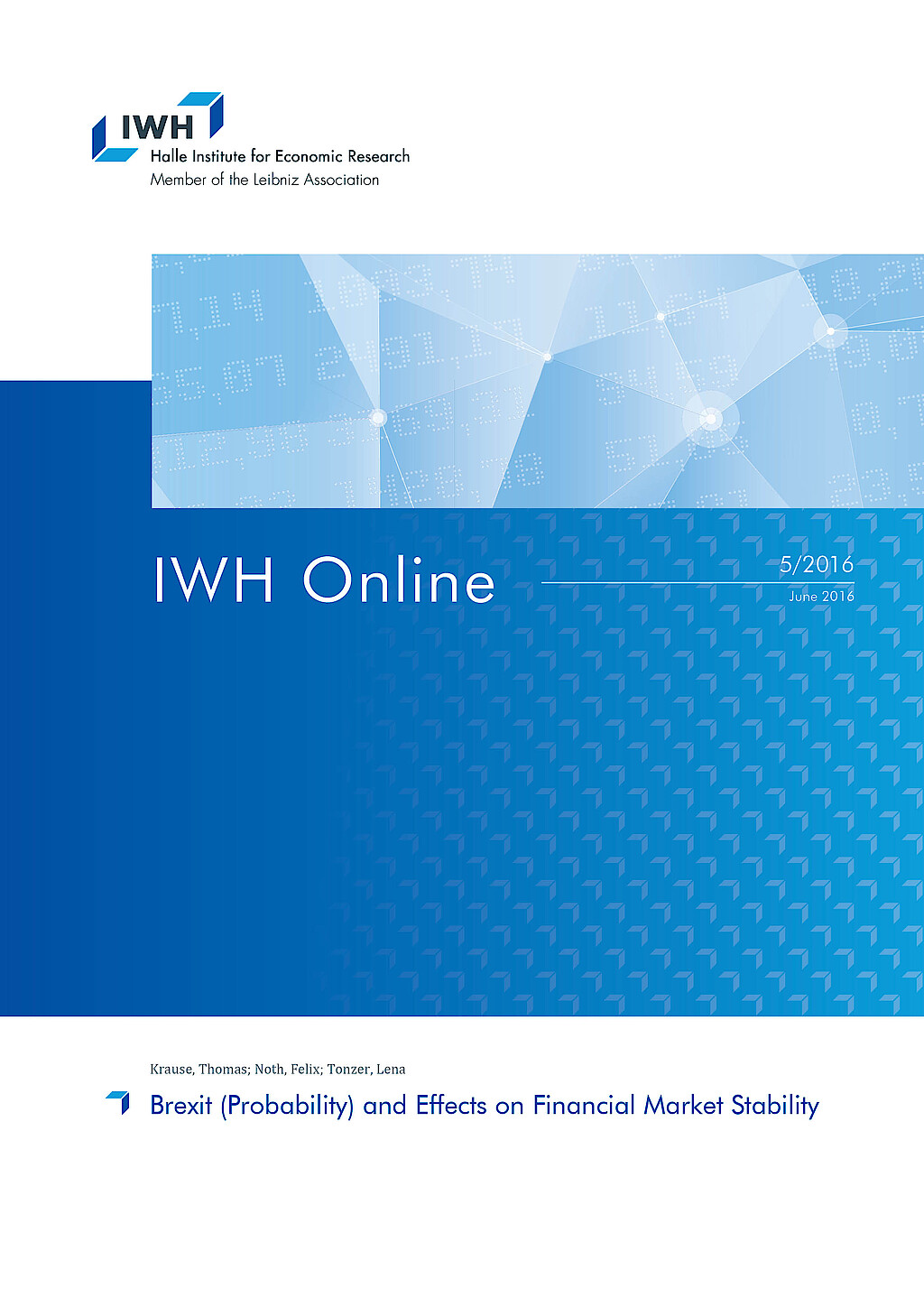
Brexit (Probability) and Effects on Financial Market Stability
On 23 June 2016, there will be a referendum in the United Kingdom (UK) on the stay of the country in the European Union (EU). Based on recent poll data, the share of supporters and opponents of an exit varies around 50%. Opponents of the UK breaking up with Brussels („Brexit“) refer to high costs in terms of stagnating economic growth if the UK leaves the EU. The risk of reduced trade, declining foreign direct investment, and a lower degree of financial market integration is high following an exit of the “single market”.
20. Juni 2016
Background
On 23 June 2016, there will be a referendum in the United Kingdom (UK) on the stay of the country in the European Union (EU). Based on recent poll data, the share of supporters and opponents of an exit varies around 50%.
Opponents of the UK breaking up with Brussels („Brexit“) refer to high costs in terms of stagnating economic growth if the UK leaves the EU. The risk of reduced trade, declining foreign direct investment, and a lower degree of financial market integration is high following an exit of the “single market”.
Supporters of the leave campaign suppose that costs of a Brexit should not be that high. They see the advantage of increased flexibility in decision making if the UK no longer has to adhere to directives coming from Brussels. Also financial markets are concerned about the upcoming referendum. This study analyses the reaction of different financial market indicators to poll results pointing toward a Brexit





